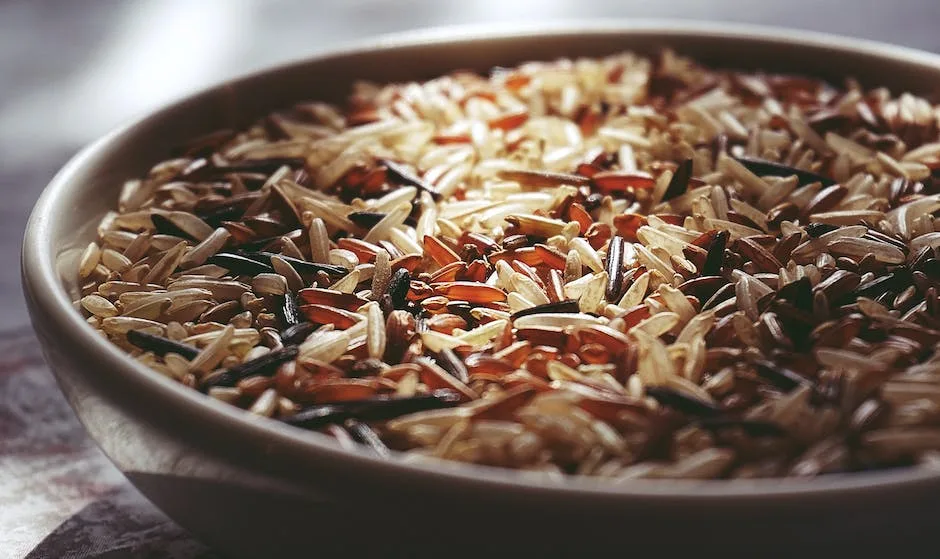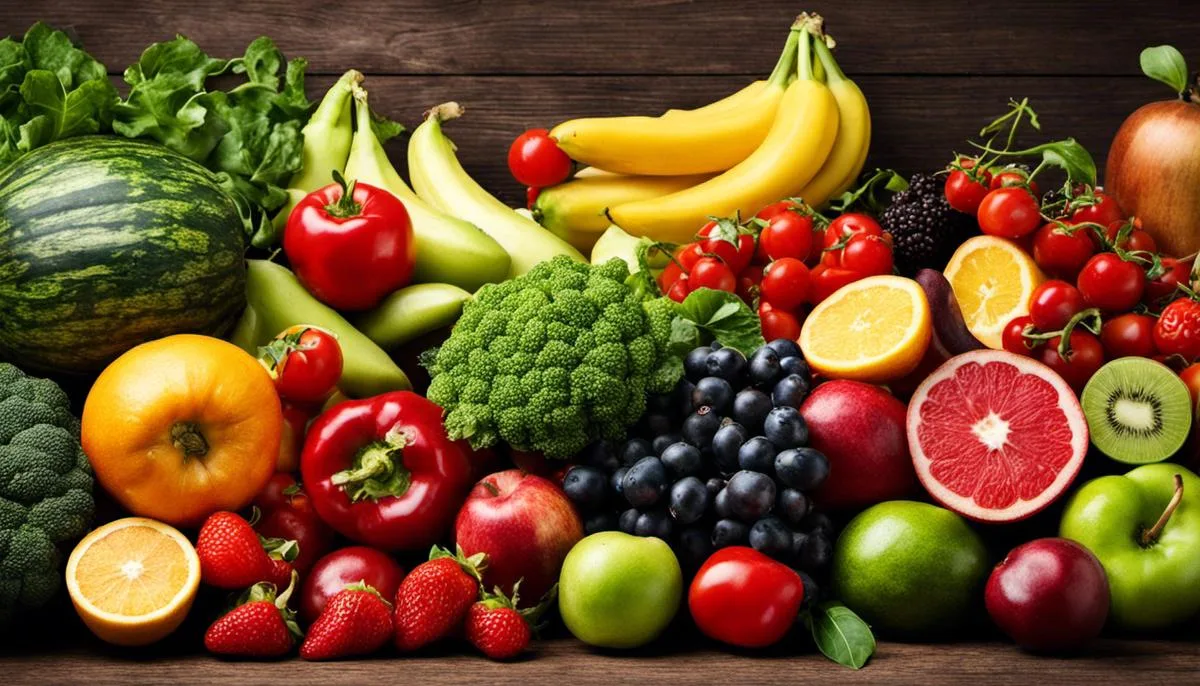Achieving sustainable weight loss requires more than just a fleeting commitment to a trendy diet; it demands a comprehensive understanding of nutrition, dedication to well-balanced meal planning, and integration of consistent physical activity and healthy lifestyle habits. Embarking on this journey may seem daunting, but with the correct knowledge and resources at your disposal, you have the power to transform your relationship with food and fitness.
This article will delve deep into the fundamentals of nutrition for weight loss, evaluate a spectrum of meal plans, guide you on creating your own customized diet and shed light on how physical activity and lifestyle changes enhance your weight-loss success. Above all, we will discuss various strategies you need to sustainably keep the lost weight off and maintain a healthy lifestyle in the long run.
Understanding Nutrition Fundamentals for Weight Loss
Understanding Calories and Weight Loss
When it comes to weight loss, calories play a pivotal role. A calorie is a unit of measurement that denotes the amount of energy a particular food or drink provides when consumed. The principle underlying weight loss is straightforward – the body needs to burn more calories than it consumes. To create a caloric deficit and lose weight, one must either decrease the number of calories ingested or increase the number of calories burned through physical activity, though a combination of both tends to be the most effective.
Macronutrients and Weight Loss
Macronutrients are nutrients that our bodies require in larger amounts. They include carbohydrates, proteins, and fats. Each performs a different function in the body and provides a different number of calories. Carbohydrates provide 4 calories per gram, proteins also provide 4 calories per gram, and fats give as much as 9 calories per gram. A well-balanced diet incorporates the right proportions of these macronutrients. For weight loss meal plans, it usually involves monitoring and altering the ratios of these macronutrients to create a caloric deficit while still ensuring the body receives all necessary nutrients.
Importance of Micronutrients in Weight Loss
Micronutrients, such as vitamins and minerals, are equally important in weight loss, albeit in smaller quantities. They are vital for maintaining various body functions, like the immune system and metabolism. Some vitamins and minerals, such as B-vitamins and iron, directly influence the body’s energy expenditure, hormone production, and ability to repair cells. Therefore, micronutrient deficiencies can hinder weight loss and negatively impact overall health.
Hydration and Weight Loss
Proper hydration is often overlooked in weight loss plans, but it’s an essential component. Drinking sufficient water aids digestion, helps maintain body temperature, and contributes to the absorption of nutrients. Hydrated skin also provides a healthy, glowing complexion. Furthermore, drinking water can help control hunger pangs and avoid overeating – a definite plus for anyone trying to lose weight.
Balancing Your Diet and its Effects on Metabolic Health
Creating and maintaining a balance in your diet is fundamental to weight loss and metabolic health. Including ample macronutrients, micronutrients, and staying hydrated, all while maintaining a caloric deficit, may seem daunting but is necessary for healthy and sustainable weight loss. A poorly balanced diet can result in nutrient deficits or excessive intake, which can disrupt metabolic health and inhibit weight loss. Therefore, planning a diverse and balanced meal, including whole grains, lean proteins, healthy fats, and plenty of fruits and vegetables, is key for optimal weight loss and overall health.
The Role of Nutrients in Health and Metabolism
Fully understanding the role of each nutrient can be critical to maintaining proper health, particularly metabolic health. Proteins, for instance, play a key role in tissue repair and the production of bodily chemicals such as hormones and enzymes. Carbohydrates, on the other hand, are vital to energy production, while fats – often misconstrued – aid crucial processes like nutrient absorption and hormone creation.
Vitamins and minerals are also important for numerous functions, including blood clotting, energy production, and supporting the immune system. Even hydration plays a vital role, with dehydration potentially causing issues like fatigue and confusion. For an effective weight loss meal plan, it’s important to incorporate these nutrients in a manner that supports both your metabolic health and overall wellness.

Photo by priscilladupreez on Unsplash
Evaluating Various Weight Loss Meal Plans
Developing a Comprehensive Understanding of Weight Loss Meal Plans
When it comes to embarking on a weight loss journey, a multitude of meal plans are available which have been tailored to promote and sustain a healthy lifestyle. These plans, while varied, all follow core principles such as paying close attention to nutritional content, employing careful portion control, and focusing on inclusive, health-conscious food groups. Understanding the tenets that underlie these meal planning strategies will help guide you in your quest towards not just slimming down, but fostering lasting health and wellness.
The Ketogenic Diet
The Ketogenic diet, often referred as the keto diet, emphasizes a high-fat and low-carb meal structure. The aim of the diet is to bring one’s body into a metabolic state known as ketosis, where it primarily burns fat for energy instead of carbohydrates.
Classic ketogenic diets typically include foods like lean meats, leafy green vegetables, nuts and seeds, and excludes carbohydrate-rich foods such as grains, starchy vegetables, and fruits. One of the primary advantages of this diet plan is its quick results in weight loss.
However, it does have its drawbacks, mainly the risk of nutritional deficiencies and the “keto-flu” – a period of fatigue, irritability, and other symptoms – that some people experience during the transition into ketosis.
The Mediterranean Diet
On the other end of the spectrum is the Mediterranean diet, which focuses on lean proteins, fruits, vegetables, and healthy fats, particularly olive oil. This meal plan — inspired by the cuisines of countries surrounding the Mediterranean Sea — actually encourages moderate consumption of whole grains and wine.
Its advantages include a balanced and nutritious meal plan that’s been associated with decreased risks of chronic diseases like heart disease and diabetes. It even promotes better brain health. However, weight loss can sometimes be slow on the Mediterranean diet, which can frustrate dieters looking for faster results.
The Paleo Diet
The Paleo, or Paleolithic, diet, focuses on foods that our hunter-gatherer ancestors would have eaten, mainly lean meats, fruits, vegetables, nuts, and seeds, while eschewing processed foods, sugar, and grains. The idea is to return to a simpler, more natural diet. Many dieters enjoy the straightforward guidelines and sense of returning to our species’ dietary roots. However, this diet can also lead to certain nutrient deficiencies, and some find it difficult to adhere to in a modern lifestyle.
The Low-Carb Diet
Finally, there are diets that focus primarily on low carbohydrate intake. Similar to the ketogenic diet, these diets limit carbohydrate intake dramatically, but unlike the ketogenic diet, they often do not require a high intake of fats. They can be quite versatile, focusing on lean proteins and leafy green vegetables, while avoiding sugary and starchy foods. Initial weight loss can be rapid, but some dieters struggle with finding a sustainable, long-term balance with such a restrictive diet.
Finding Your Ideal Diet
Choosing the perfect diet plan should take into account multiple factors, such as your distinct health goals, food habits, lifestyle choices, and taste preferences. The fact that a diet plan works magically for one individual doesn’t guarantee the same winning results for others — which is why professional advice should be the first step before initiating a new meal plan.
Moreover, it’s challenging to predict a diet plan’s long-term success rate due to the variations in individuals’ lifestyles and commitment. Hence, it’s crucial to choose a diet plan that not only aligns with your risk of chronic diseases and weight loss targets but also suits your ability to consistently maintain adherence to the plan.

Crafting a Custom Weight Loss Meal Plan
Designing a Custom Weight Loss Meal Plan
The first step towards a personalized weight loss meal plan is to recognize your unique food predilections, any dietary restrictions you might have, and your nutritional requirements. Having a meal plan tailored to your preferences makes it much more enjoyable and subsequently, much easier to stick to.
A weight loss meal plan should embrace variety. Consuming different foods ensures a broad range of essential nutrients and keeps your meals exciting, thus preventing any food burnout or diet fatigue. With internet offering a cornucopia of healthy recipes tailored to multiple cuisines and diet preferences, it’s smoother than ever to maintain a varied and tasty weight loss diet.
Controlling portion sizes is another key factor, as too many calories, even from healthy foods, can still trigger weight gain. Practical strategies to manage portion sizes can include using smaller dinnerware and consciously taking less food. It’s crucial to monitor portion sizes when eating out or consuming pre-packaged meals. Also, experiencing slight hunger between meals signifies that your body is utilizing stored fat for energy and it’s perfectly alright.
Factoring in your favorite foods now and then can be the secret to the durability of your weight loss meal plan. The occasional pizza, scoop of ice cream, or piece of juicy fried chicken can still have a place in your diet, provided they are occasional treats rather than daily staples. Here, the important principles to remember are moderation and balance.
Meal Prepping and Finding Recipes
Meal prepping can be a game-changer in your weight loss journey, as it helps manage portion sizes, control ingredients, and avoid impulse eating. Dedicate a day in the week to prep meals for the next few days.
Invest time researching and trying out different recipes. Look for recipes that are within your cooking skill level, are made with readily available ingredients, and align with your nutrimental preferences.
There are many online platforms that showcase healthy and tasty recipes, many of which also provide detailed nutritional data like calorie count, macronutrient breakdown, etc. Blogs, social media platforms like Instagram and Pinterest, and cooking apps are excellent resources to get you started.
Modifying Meal Plans Based on Weight Loss Progress
Aligning your meal plan with your weight loss progress is essential due to ongoing metabolic changes. As weight decreases, the body needs fewer calories for daily function, resulting in a reduced energy requirement.
These necessary adjustments may involve lessening portion sizes, substituting high-calorie food for low-calorie options, or including another workout in your weekly schedule.
Remember, achieving weight loss is a steady process, and it’s okay if some meal plans don’t yield your desired results initially. The key is to explore various plans and ingredients, customizing them based on your body’s needs, preferences, and progress. You’ll eventually discern the ideal plan that best resonates with your individual requirements.

Photo by golovinska on Unsplash
Incorporating Physical Activity & Lifestyle Changes
The Role of Physical Activity in Weight Loss Strategies
Incorporating physical activity alongside a proper meal plan is a central element of an effective weight loss strategy. Exercise not only burns additional calories but it enhances metabolism and overall physical fitness.
Consistent physical activity can lead to calorie deficit, allowing for weight loss by utilizing energy stored as fat. Coupling routine exercise with a considerate meal plan fosters efficient calorie control and weight reduction. Once achieved, exercise also helps in maintaining weight loss, preventing regained weight.
As per the American Heart Association’s recommendation, adults should engage in a minimum of 150 minutes of moderate aerobic activity or 75 minutes of high-intensity aerobic exercise weekly. Complement these with muscle-strengthening exercises at least twice a week. Such activities can range from walking and running to swimming and cycling.
Lifestyle Changes for Weight Loss
Lifestyle factors like sleep patterns and stress management are often overlooked in weight loss programs but can significantly impact your results.
Sleep influences two hormones, ghrelin and leptin, responsible for feelings of hunger and fullness, respectively. Lack of adequate sleep can disrupt the balance of these hormones, leading to increased hunger cravings and overeating. Striving for seven to nine hours of sleep per night can aid in managing weight effectively.
Stress management is another critical lifestyle change to consider. Chronic stress can lead to excess levels of the hormone cortisol in the body, which can stimulate the appetite and lead to weight gain. Techniques like yoga, mindfulness, and meditation can help manage stress levels, reducing the urge to eat in response to emotional situations.
Making Exercise a Part of Your Everyday Lifestyle
Enhancing your daily level of physical activity does not necessarily mean engaging in rigorous gym workouts for grueling hours every day. Even minor adjustments to your daily lifestyle can significantly contribute to your weight loss journey. Simple activities like opting for stairs instead of the elevator, taking brief walks during your work break, parking your car further away at a store to increase walking distance, or engaging in light stretching or at-home workouts whilst watching television can make noticeable differences.
It’s vital to remember that the real secret to exercise success is consistency. Regular, moderate exercise is far more targeted and beneficial in the long run than occasional intensive sessions. The best way to maintain consistency is to incorporate activities that you genuinely enjoy, as it increases the chances of you maintaining them.
In the grand scheme of things, integrating routine exercise and making mindful lifestyle modifications can significantly augment the efficacy of your weight loss meal plan. Implementing these changes together paves the way for an all-encompassing approach towards healthy, long-term weight loss.

Maintaining Long-term Success in Weight Loss
Overcoming the Difficulty of Maintaining Weight Loss
Consolidating weight loss over an extended duration is frequently the most formidable challenge faced by individuals striving to combat obesity or being overweight. True success in weight loss isn’t merely about losing the excess weight but also consistently keeping it off. This necessitates a meaningful shift in mindset, a perpetual mindfulness about one’s dietary and lifestyle habits, and the resilience to manage unexpected disruptions to the daily routine.
Mindset for Long-Term Weight Loss
Maintaining long-term weight loss primarily begins with the right mindset. A mindset that focuses on health rather than body image, that prioritizes long-term benefits over short-term gains, and that’s open to constant learning and adjustments. This mindset shift is crucial to adapt the required dietary and lifestyle changes that enable sustained weight loss.
Consistent Monitoring for Weight Management
A common trait among individuals who have successfully sustained weight loss is their practice of consistent monitoring of dietary habits and physical activity. Regular tracking helps identify patterns, triggers, and progress, encouraging positive behavioral changes. Self-monitoring can take various forms such as maintaining a food diary, regular weigh-ins, recording physical activity, and use of digital weight loss applications.
Gradual Changes with Weight Loss Meal Plans
Rapid, drastic changes to diet often result in short-term weight loss but are generally unsustainable in the long term. Gradual changes, on the other hand, are more manageable and can help maintain lost weight. Weight loss meal plans should be designed considering individual preferences, dietary requirements, and lifestyle. They should encourage healthy eating habits like portion control, inclusion of more fruits, vegetables, whole grains, and lean proteins, and reduction of processed foods, sugar, and unhealthy fats.
Managing Special Occasions and Disruptions
Even with the most consistent and disciplined approach, there will be special occasions, vacations, or life changes causing disruptions to routine. Rather than viewing these as setbacks, one must learn to adapt and manage these scenarios. This might mean finding ways to stay physically active during a vacation, planning ahead to make healthier food choices at social events, or find ways to manage stress without resorting to emotional eating.
Importance of Accountability and Support
Accountability plays a critical role in sustained weight loss. This could mean regular check-ins with a dietitian or nutritionist, participating in a weight loss group, or having a weight loss buddy. The right support network can provide motivation, advice, and a sense of accountability, key for long-term weight loss success.

The journey towards sustainable weight loss and health transformation is a step-by-step process requiring strategy, consistency, resilience and adaptability. Understanding the nuances of nutrition, selecting or designing an effective meal plan, and embracing regular physical activity, are integral components of this weight loss equation.
However, equally important is acknowledging the influence of lifestyle factors and learning to navigate roadblocks along the journey. While challenges are inevitable, the reward lies not just in achieving the weight-loss goal, but in the journey of personal growth and healthier habits cultivated along the way.
Stay empowered with the knowledge shared in this article, remain patient, and trust the process. Your progression will not only transform your physical health but will also foster resilience and adaptability that would resonate in your overall well-being and lifestyle.
Thank you for reading this post, don't forget to subscribe to our free newsletter
!
